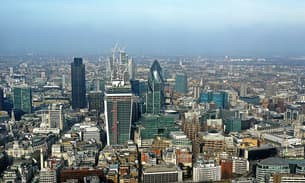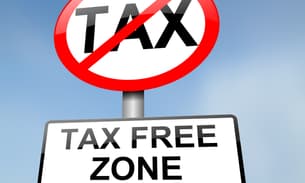
Tax havens: a low cost place in the sun
If Standard & Poor made an AA Travel Guide it would definitely feature Luxembourg
Trying to choose where to go on a budget holiday this year? Forget low-cost airlines, if you really want to save a fortune why not choose Luxembourg? It has it’s own type of champagne and sausage, is nestled in the heart of Europe, and, should you happen to run a big business, offers tiny tax rates that could save you a bundle.
Last night Panorama’s The Truth About Tax explored how one tiny country, with a population smaller than London, has become an impenetrable piggy-bank for some of the world’s biggest corporations.
Unprecedented raw detail
A major factor in the tax haven’s appeal is the secrecy that cloaks tax affairs there. Unlike the UK, companies are under no obligation to publish their accounts.
However, thousands of pages of leaked documents, passed on to Panorama, now reveal the complex tax avoidance methods used by big business.
Richard Brooks, a former tax investigator and contributor to Private Eye, calls the leaked documents ‘unprecedented’. ‘I’ve never seen anything like this before, setting out in raw detail how a tax avoidance scheme works,’ he said.
However, to the untrained eye the complicated schemes and methods employed to ferry profits to tax havens are something of a puzzle. When Brooks’ attempt to explain using a whiteboard and marker leaves reporter Darragh MacIntyre confused, the programme employs some clever graphics to illustrate.
In a rather creative section combining magician’s slight of hand, and iPhone technology, we are told pharmaceutical giant GlaksoSmithKline (GSK) opened a branch in Luxembourg which then loaned £6.34bn to its UK office, according to the documents. In return the UK company paid nearly £124m in interest to the Luxembourg branch. That £124m was taxed in Luxembourg at less than 0.5%, compared to what would have then been 28% in the UK. A potential saving of £34m corporation tax for the company. A loss of £34m to the UK Treasury.
It is not just GSK that is involved. According to Action Aid just over half of the biggest 100 companies listed on the London Stock Exchange have subsidiaries in Luxembourg.
Wandering around the central European country reporter Darragh MacIntyre finds tiny offices, apparently housing some of the world’s biggest corporations. Northern & Shell, parent company of the Express newspapers and Channel 5, is seemingly housed in a small office above a stamp collectors’ shop.
The Bureau found a similar situation when we, along with Private Eye, investigated Vodafone’s dealings in Switzerland, another tax haven. Undercover filming revealed the communication giant’s staff in Switerland consisted of one part-time book keeper who indicated to our reporters that their main purpose was tax avoidance.
Read more about our Vodafone sting here.
All the companies featured in the programme asserted that they were acting completely legally and by the book.
UK loses out
This kind of tax avoidance scheme is totally legal but is having serious consequences for the UK’s faltering economy. Last year companies in the UK paid over £42bn in corporation tax, making up 10% of the Exchequer’s total revenue but they could be paying more. According to Chair of the Public Accounts Committee Margaret Hodge, interviewed on the programme, the National Audit Office and HMRC say that up to £25bn in taxes could be owed from big businesses.
No wonder then that in his last budget speech George Osborne called tax avoidance ‘morally repugnant’.
However, despite the calls that ‘we are all in it together’, the government has made it easier than ever for companies to avoid taxation.
As well as slashing corporation tax in the UK the Treasury has also relaxed its controlled foreign company rules, making it easier for companies to create subsidiaries in tax havens, and thus protect their profits from UK tax.
The logic behind the Treasury’s actions is that, despite the lost corporation taxes, relaxing their systems could encourage companies to move their headquarters to the UK. ‘If we’re really determined to see growth in this country we have to have a competitive tax system,’ David Gauke, Exchequer Secretary to the Treasury, tells Panorama.
BP’s Head of Tax seems to agree. He is interviewed saying that when it comes to the UK, ‘there is no better place from which to run a multi-national corporation in tax terms.’ It is, he says, the result of ten years long work from companies.
That work involved some concerted lobbying from the business world, although in some instances their opinions were actively sought out by the government. MacIntyre explains that both Vodafone and GSK were invited by the Treasury to consult on the new taxation rules.
So it seem this summer, if you happen to be a major, multi-national business, you can forget Disneyland, Luxembourg may well be the happiest place on earth. Meanwhile Osborne and the Treasury will be working away, hoping that in the future big business will choose a ‘staycation’.
Watch Panorama’s The Truth About Tax here.
Sign up for email alerts from the Bureau here.




